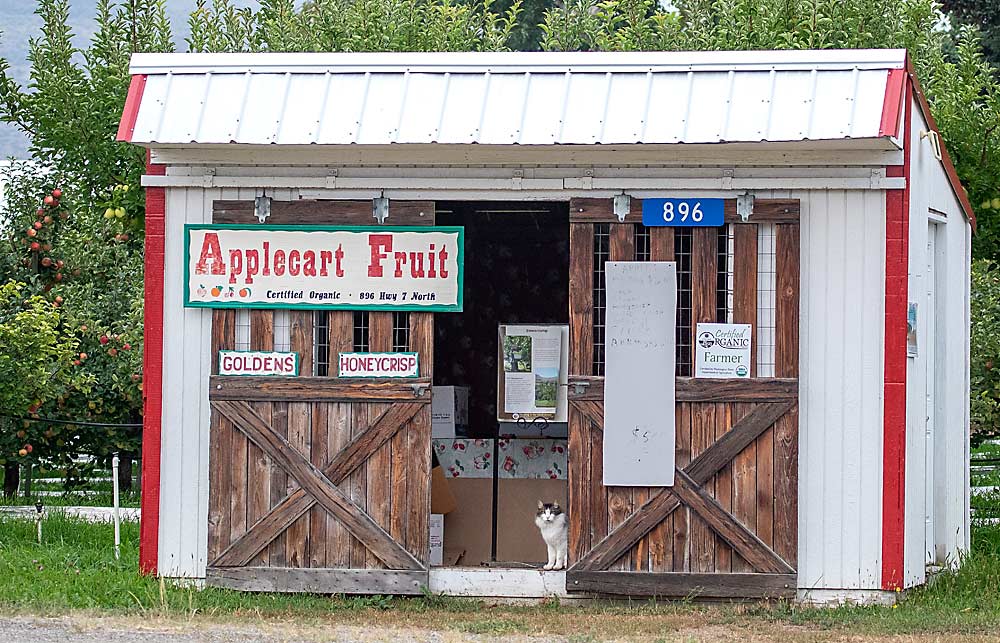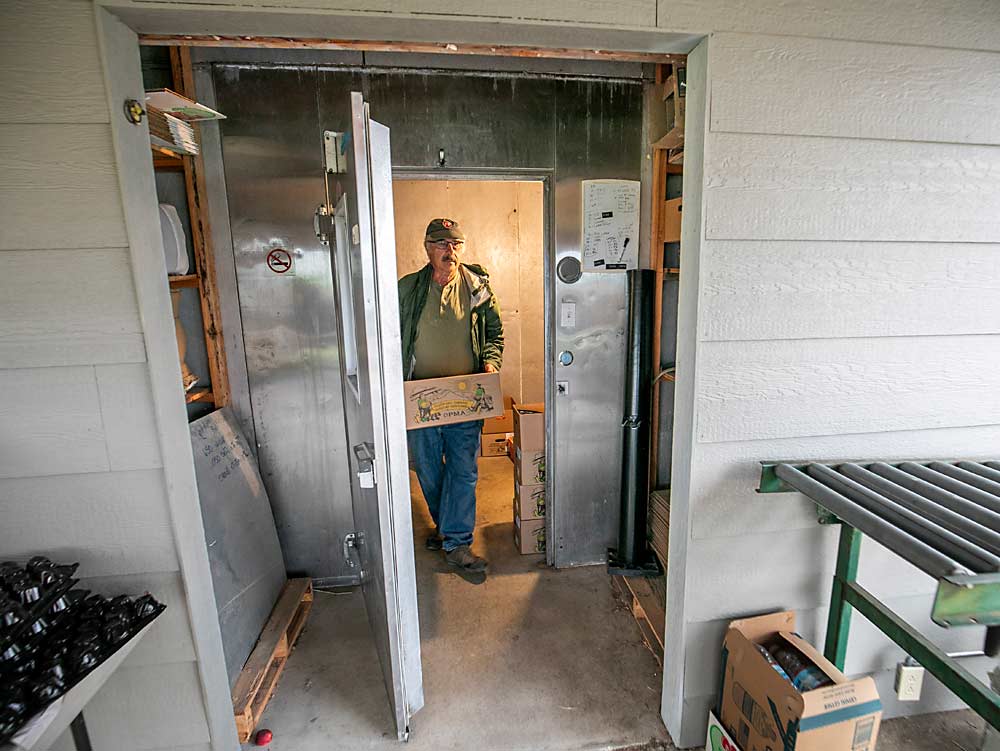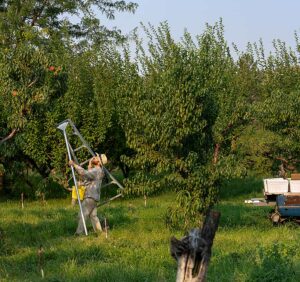
A longstanding marketing cooperative in North Central Washington’s Okanogan Valley, which was created to enable small growers to reach the market, is making a change for the bigger.
In the past few years, Okanogan Producers Marketing Association, or OPMA, has begun marketing the fruit of mid-sized growers.
“Our goal is to continue to grow by volume,” said Heather Dalzell, sales and marketing manager for OPMA.
The group, founded in 2006 as an alternative food delivery network, delivers fresh peaches, plums, apples and pears to specialty markets throughout the state. In the early years, the group catered to limited-acreage growers.
Now, to keep up with increasing customer demand, OPMA partnered with Tonasket-area growers M&A Orchards for cherries and Whitestone Mountain Orchards for greater volumes of apples and pears, especially Granny Smith apples, “a variety we never have enough of,” Dalzell said.
Those two farms aren’t huge, compared with the large acreages found in Washington’s Columbia Basin, but together account for hundreds of acres. Both also sell fruit wholesale outside of OPMA’s network.
M&A Orchards, owned by the Maldonado family, started with OPMA as a project for the family’s third generation.
General manager Hector Maldonado first charged his son, Diego, then in high school, with cobbling together a packing line, hiring a crew of schoolmates and working with Dalzell. Diego has since moved on to pursuing a mechanical engineering degree at Gonzaga University, so his younger brother, Cesar, and cousin, Yulissa Morales, now pack cherries for OPMA.
The family has been pleased with the high margins and loyal customers they have found through the marketing group.
“We’ll definitely keep doing it,” Hector said.

The cooperative owns three vehicles — two vans and a truck — that make five deliveries or more per week during peak season to specialty stores from Olympia to Bellingham, as well as Spokane and stops in between. The shipping season starts in June with cherries and ends when the members sell out stores of apples and pears in January or February.
The group also delivers to high-end markets in the Methow Valley, but only to a few locations in the Okanogan Valley where most of the farms are based, Dalzell said.
Dalzell negotiates with customers based on scale and consults industry price sheets like any sales desk, but members typically have more say over their prices by delivering only tree-ripened fruit and unusual varieties, she said.
Some customer stores consider locally sourced produce part of their cause, said Alan Shepherd, owner of Rocket Market, a specialty food store on Spokane’s South Hill.
He carries basics such as sugar and butter and haggles for low prices on year-round items. He also discounts fresh organic produce for weekend sales.
But when it comes to excitement-generating seasonal produce, he lets the farmers dictate price. The model works for peaches from Filaree Fruit, an OPMA member near the town of Okanogan. Shepherd turns down peaches from elsewhere to build anticipation for Filaree’s.
“People are champing at the bit, and when (Filaree’s peaches) finally come in it’s like a holiday here,” Shepherd said.
That dynamic is difficult to manage with over 100 local suppliers, Shepherd said, but he considers his network sustainable. He started the store 24 years ago and has worked with Filaree the whole time, years before OPMA was founded.
The cooperative status also opens grant opportunities. For example, the group just applied for a grant to purchase two new delivery trucks, one with a lift gate. And participation in the co-op sometimes makes the individual members more attractive to funding agencies.
With help from a Washington State Department of Agriculture grant, Michael Simon, a founding member from Tonasket, recently expanded his Applecart Fruit packing shed to add a bathroom.
Grant applications involve narratives, he said. His included the cooperative and made the case that the money would be used to help build a more secure food network, part of OPMA’s founding mission.
Other than his honor-code roadside fruit stand, Simon sells exclusively through OPMA.
He would like to expand the geography of the membership. The group sometimes arranges deliveries and sales for outside growers and offers backhauling services.
“We’re open to it,” he said. “It’s just finding people to participate.”
—by Ross Courtney







Leave A Comment